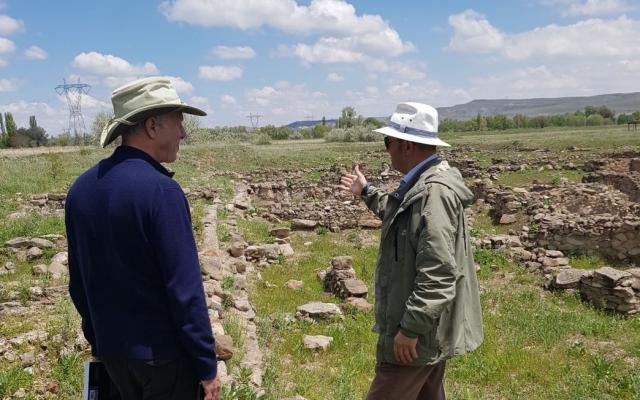
Keller Center faculty member Derek Lidow went back 9,000 years to research ancient entrepreneurs for his new course ERG 301: The History of Entrepreneurship, which will be offered this fall through the Keller Center.
KC: When we think about the history of entrepreneurship most people would naturally look to our more recent past, but your new class ERG 301: The History of Entrepreneurship looks back quite far into human history. Can you tell us why it’s important for entrepreneurs to look that far back in our history?
DL: How important entrepreneurship is to humanity, i.e., how much is this activity part of being human, depends upon when in the past it emerged as an identifiable activity—the farther back means the deeper entrepreneurial thinking is embedded into who we are. It is very important to trace the origin of entrepreneurship as far back as the archeological record will give us the resolution to spot the activity.
KC: Can you tell us about your recent research trip for the course?
DL: Much of the evidence of entrepreneurial activity is buried in studies on other topics. That means that to study this history you need to extract evidence of entrepreneurial activity from books and articles on other subjects, which in turn means you don’t know exactly how much of the story or evidence has been filtered out. I needed to see 17 different sites I wanted to discuss in class with my own eyes to independently assess the site’s importance to the subject. I traveled to England, Spain, Italy, and Rome to meet people who worked themselves on the sites I wanted to learn about and who had the authority to let me see and experience the sites first-hand—not behind a railing or from the perspective of a visitor center. I visited sites dating from as far back as 9,000 years ago (I had to climb down an excavation pit 40 feet deep to get to those houses), to more recent sites from the late Industrial Revolution, around 1850.
KC: How will you bring that experience into the classroom?
DL: I will be able to describe the context of entrepreneurship to our actions, past and present, with much more clarity and visual acuity, which should enable students to feel as if they were there, both in time and in place.
KC: What was the most surprising finding?
DL: We think we invented tech entrepreneurship in our lifetime but most of the entrepreneurial techniques we use today were in wide use 4,000 years ago. We have even more to learn from the history of entrepreneurship than I ever imagined.
